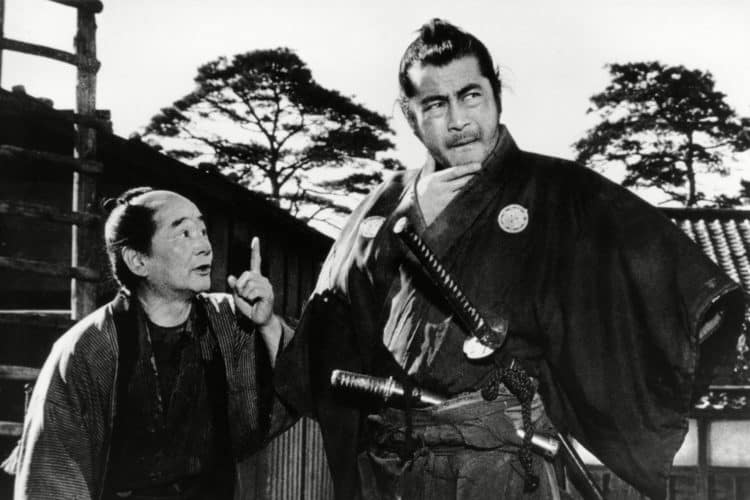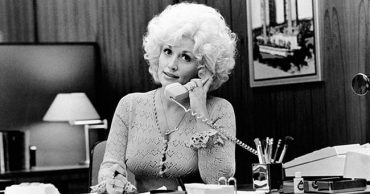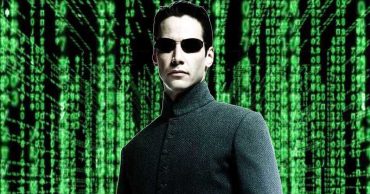
One of the oldest film genres is Samurai Cinema. It’s more significant than the Old Western genre that was so prominent in the old days and even now, samurai movies are still amazing. Just recently, I checked out 13 Assassins, a 2010 movie directed by Takashi Miike. It was actually a remake of Eiichi Kudo’s 1963 film of the same name, which I haven’t seen (yet). To sum the film up, it was bloody, very bloody. There were plenty of katanas swinging and spilling blood and the film didn’t hold back once. Personally, I appreciate films that aren’t afraid to just go there. 13 Assassins is a prime example, so don’t watch it if you have a weak stomach.
I don’t just appreciate Samurai Cinema because of the awesome action it shows. When the genre first began, it was less action-centered and more about dramatic themes. The genre changed after 40’s, as its films focused on more “lone warrior” characters who suffered psychologically from war. During this time, a Japanese film director, producer, and screenwriter named Akira Kurosawa emerged and pretty much defined the genre.
I must say, you’re not a true film fanatic until you’ve watched Seven Samurai. In my opinion, this is Akira Kurosawa’s best work and one of the greatest films ever made. If you want a period piece about Japanese history, then check out Seven Samurai. If you want a good action film that’s in black-and-white, then check out Seven Samurai. Heck, if you want to see the movie that was the basis for all group-themed action movies, you need to watch Seven Samurai. The legacy of this film is greater than many film fans may realize. In the realm of Samurai Cinema, it serves as a prized jewel for what every samurai movie should be.
So let’s talk about why Seven Samurai is such an influential film. The setting of the film is 1586, during the Sengoku Period of Japanese history. The Sengoku Period is one of Japan’s darkest chapters, as it was a time of constant civil war between rival samurai warlords and clans. It was a time where common farmers were ripe targets for bandits. This is the beginning of the plot for Seven Samurai. Bandits came to steal the crops of defenseless farmers and the farmers needed protection. The farmers searched for warriors and found seven ronin, or samurai without masters. With the exception of one, the ronin were skilled warriors and willing to defend the town. This led to all seven men bonding, especially for Kikuchiyo, the one imposter who secretly resented the samurai because he came from a family of farmers.
We got to learn some interesting history about the samurai through the interactions of these men and how it affected their lives. That’s what made Akira Kurosawa’s samurai films so intriguing. He didn’t just make it about action. His samurai characters were lone warriors without a purpose. That’s why the seven samurai were actually ronin. They were once respected samurai, but their lives of fighting left scars on them emotionally and psychologically.
This was the overall theme of many of Akira Kurosawa’s films, as he wanted to show the samurai way of life. In the case of his ronin characters, he showed how the change of their status affected them during the times of change in Japanese society. These are all great concepts and Akira Kurosawa manage to make them work in Samurai Cinema. He blended these kind of dramatic themes with great samurai action, and that is why his samurai films worked.
So what is the biggest legacy of Seven Samurai? What I loved most about it is actually why I dug 13 Assassins. It’s a story about a group of warriors coming together to fight a great threat. It’s essentially that Dirty Dozen vibe, except Seven Samurai did it first. I’m just a total sucker for that Dirty Dozen-like storyline and Seven Samurai is the film that inspired that concept. I dig the idea of different kinds of warriors joining forces, becoming friends, and fighting together in the coolest fashion. They can be samurai, they can be criminals during World War 2, and heck, they can be superheroes.
Anyone remember listening to Zack Snyder talk about his inspiration behind Justice League? His whole “Unite the Seven” image was direct nod to Seven Samurai. Seven samurai who banded together to fight bandits, and seven superheroes to form the Justice League and fight evil. Yes, I’m aware there really wasn’t seven members, but keep in mind, that technically wasn’t Snyder’s Justice League. We have to wait a little while longer to find out if he actually included a seventh member and I hope he did. Or maybe he was just referring to the seven seas because of Aquaman, but I really hope that wasn’t the case.
The point is, Snyder’s inspiration for group-themed superhero movie came from Seven Samurai. Akira Kurosawa’s vision started a fantastic concept that only grew bigger and stretch from films and to video games. You want the best example? Mass Effect 2. Dirty Dozen in space. It’s a concept that just keeps going and I want it to keep going. Look at other things like Suicide Squad, The Avengers, all ideas that were inspired by Seven Samurai. Who doesn’t like warriors coming together and kick some butt?
Zack Snyder isn’t the only director to take inspiration from Akira Kurosawa. One of the most notable film directors ever to take influence from his works is George Lucas. Where do you all think he got the concept for the Jedi from? A creed of warriors with unique swords who stick to their strict code of honor? Lucas has given credit to the creation of his Jedi, due to the influence of samurai and Kurosawa’s films. The samurai mannerisms, warrior methods, and their overall way of life is what drove Lucas to create the Jedi. Every great creation comes from somewhere and for Lucas, Kurosawa’s films portrayal of samurai was that inspiration. So what I’m saying is simple: Akira Kurosawa is indirectly responsible for the creation of Jedi and Star Wars. You got to give him kudos for that one.
Samurai Cinema is art that deserves our greatest appreciation. Not only has it given us some great movies, but it inspired the creation of very many pieces of art. It’s one of the oldest forms of cinema and will continue to deliver the great samurai action. Thank you, Akira Kurosawa.
 Follow Us
Follow Us




